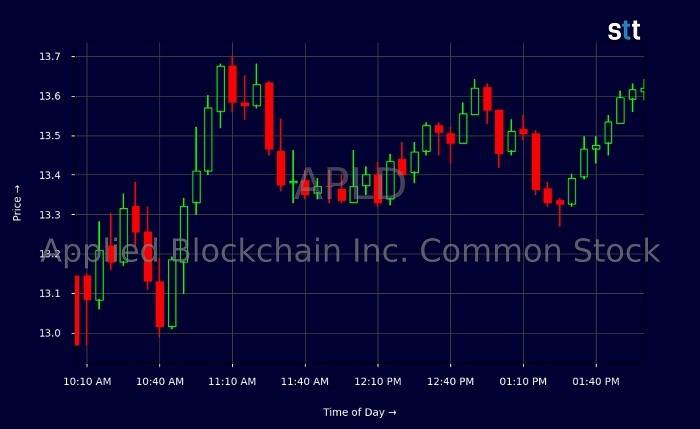
Asia-Pacific Landwatch: APLD News 2025’s Urban and Rural Transformations
From Singapore’s skyscrapers to Vietnam’s green villages, Asia-Pacific land development is changing fast. At its center is APLD News, one of the continent’s most reliable sources of news on land use, housing, infrastructure, and environmental development.
In this 2025 edition, we bring to you the most critical land and planning news from Asia-Pacific. You’ll find new towns, housing policy, green developments, and smart tech trends that will form Asian towns and cities of the future.
Urbanization in the Asia-Pacific
China’s Mega-City Zones

In 2025, APLD News tracked two enormous city-development schemes in China:
- The Greater Bay Area (GBA) connects cities like Guangzhou, Shenzhen, and Hong Kong.
- The Chengdu–Chongqing Twin City project was for intelligent development in the west of China.
Both plans focus on new housing, green parks, and better public transport. These megalopolises will soon have millions of inhabitants living in green, smart districts.
Southeast Asia’s City Booms
APLD News cited fast growth in cities like:
- Jakarta, Indonesia: more high-rises and better drainage.
- Hanoi, Vietnam: new affordable dwellings supported by government schemes.
- Manila, Philippines: old city centers that had been revitalized into mixed-use neighborhoods with homes, malls, and schools.
These cities are finding equilibrium between development and the need for parks and better roads.
New Infrastructure Projects Gracing the Headlines
Malaysia–Singapore High-Speed Rail
One of the most eagerly awaited projects finally launched: a high-speed train from Kuala Lumpur to Singapore.
The project, according to APLD News, will:
- Shorten travel time to 90 minutes.
- Is to support new towns near the stations.
- Is to finish by 2035.
This will make it easier to travel and add jobs along the railway line.
Nusantara: Indonesia’s New Capital
Indonesia is moving its capital away from populous Jakarta to Nusantara, a new green city in Borneo. In 2025:
- Initial government offices were opened.
- Solar power was installed in zones.
- Legislation regarding land was implemented to protect forests and rivers.
APLD News called it the “biggest green capital experiment in the world.”
Australia’s Inland Rail Project
Australia upgraded its Inland Rail network in 2025. It helps move goods from farms to cities. New bridges and tracks were built to resist floods and storms.
APLD News stated it would help farmers get to ports faster and construct new inland towns.
Affordable Housing & Policy Updates
Singapore’s Housing Market Changes
To stop the prices from rising too rapidly, the government:
- Cut down the amount of loan taken by buyers.
- Limited the number of homes one can own.
APLD News reported that this helped locals to buy homes, even though some investors did not appreciate it.
Japan Reuses Empty Homes
There are plenty of empty homes in Japan’s small towns. The government started providing:
- Loans to renovate old homes.
- Rebates on taxes to buyers.
- Grants to convert houses into guest houses.
These two programs reduce fuel and bring life back to quiet towns.
New Zealand Revitalizes KiwiBuild
New Government policies in 2025:
- Promote building of lower-cost houses in Auckland suburbs.
- Force builders to incorporate rental homes into developments.
- Allow smaller plot land to build more quickly.
APLD News informed us that more young couples are able to purchase or lease near the city.
Going Green: Smart and Eco-Friendly Cities
Smart Districts in Japan

Tokyo also unveiled the Odaiba Smart Zone, which features:
- Hydrogen-powered electric buses.
- Solar glass covering buildings.
- Waste and energy-saving sensors.
This is a trend other major cities in Japan will likely emulate, according to APLD News.
Seoul’s River Transformation
Seoul transformed flood areas into public parks:
- Green river stairs prevent floods.
- A special space for birds and fish was created.
- Parks are built to handle both dry and wet seasons.
Locals now enjoy nature while the city fights rising waters.
Private Companies Changing City Life
Tencent’s Smart Towns
Chinese tech company Tencent launched “iTOWN”:
- Cities with smart trash systems.
- Self-driving cars.
- Apps that control home energy.
APLD News says private companies are helping make cities more modern.
Adani’s Eco-Cities in India
Adani built towns that:
- Use only solar power.
- Collect rainwater.
- Recycle waste water.
But others wonder if they are really cheap or just for the rich.
Singapore’s Waterfront Future
Keppel Corporation started building Keppel Waterfront City:
- Parks and office spaces that produce more energy than they use.
- Train and bus-linked walkways.
- Floating gardens to fight heat.
APLD News received this warmly for its balance of business and climate action.
Rural Growth and Village Revivals
China’s Countryside Plans
In 2025, China began plans to:
- Help villages to earn more with eco-tourism.
- Install internet in remote places.
- Cluster farms in one area to increase soil and water.
APLD News covered news of villagers selling local items online now.
Sri Lanka’s Peace Village Program
Residents of North who lost their lands during the war:
- Were given legal papers for their houses.
- Had transferred to new houses.
- Planted trees to restore nature.
APLD News reports that this has helped to build confidence and preserve nature.
Nature Projects & Climate Planning
Mangrove Planting in Vietnam
Vietnam planted mangroves to battle floods and carbon storage:
- Over 10,000 hectares of new mangroves.
- Trees which also help fish and crab farms.
These protect the coast and help local families earn an income.
Rock Protection in Hong Kong
Residences on Hong Kong hill sides used to be hit by rocks. In 2025:
- Walls and metal nets were introduced in danger areas.
- Cliff roads were strengthened.
APLD News stated that accidents decreased by 70%.
Wetland Return in Bangkok
Bangkok returned lands to the wild by:
- Demolishing buildings in the danger of floods.
- Creating wetlands for water life and birds.
- Creating walkways above the ground for people to walk around and enjoy the area.
Locals now enjoy walks and dry seasons without floods.
Learning from Experts
APLD Symposium 2025

In April, APLD held a conference in Kuala Lumpur. Experts from:
- UNDP
- Singapore, Japan, and Australian universities
…discussed:
- Cities and climate
- Fair housing
- New building materials
- AI for land planning
It was covered daily in APLD News.
Expert Columns
APLD News has a monthly column “Land in Focus.” Recent features:
- Planning new cities with AI.
- City development to make poor families more equal.
- Circular water systems in dry nations.
These are easy to read and widely shared by city officials and students.
Top 5 FAQs About APLD News
What is APLD News?
It stands for Asia-Pacific Land Development News. It is about planning, housing, green projects, and city news across Asia-Pacific.
Is APLD News free?
Yes, core content is free. Expert reports and data need to be paid for.
Who reads APLD News?
City planners, engineers, government officials, architects, students, and investors in Asia-Pacific.
Can I submit a story?
Yes! APLD welcomes real stories, photos, or ideas from cities, towns, and professionals.
Which countries is it covering?
China, India, Japan, Vietnam, Indonesia, Australia, Singapore, Sri Lanka, New Zealand, and more.
What to Look Out for in APLD News in 2026
In 2026, APLD will have new features:
- An interactive city map showing live projects.
- Land rights stories of Indigenous and rural communities.
- Green finance trackers to follow money behind climate initiatives.
- Youth-led innovations, an opportunity for students to share city ideas.
APLD News will remain the best place to follow land and planning news in Asia-Pacific.
Conclusion
Asia-Pacific is abuzz with change. Cities are growing. Villages are going online. Governments and companies are making greener, smarter, and safer places. But all this throws up massive issues—issues of equity, of nature, and of the future.
APLD News gives us plain, honest, and ordinary news of such developments. From new rail tracks to tree companionship, from smart homes to safe land titles, APLD tells us how the region is evolving—and in which direction it’s heading.
If you care about the planning of cities and land, this is your site.
A very useful publication.




